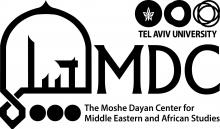Abstract:
"Saudi Arabia’s turn to regionalism during the past three years, principally in partnership with Egypt, is an expression of both its weakness and its power. Its role as the world’s swing producer in the global oil markets makes it an international power. This economic power, in turn, has allowed the Kingdom to help stabilize weaker economies in the region, like Egypt, that have been hard hit by global recession, inflation, and food insecurity. On the other hand, its military failure in Yemen and the US’s attenuating security commitment have forced it to build regional and inter-regional partnerships for protection and defense. Under the leadership of Crown Prince Mohammed bin Salman (MbS), Saudi Arabia would prefer to impose its will on the region without having to build a regional consensus for its initiatives. But its lack of independent military power has constrained the Kingdom. The Saudi-Egyptian partnership therefore represents a mutual recognition of the limits of their respective power. It also raises the question not merely about who leads whom, but whether the carefully cultivated interdependency between them will hold."








